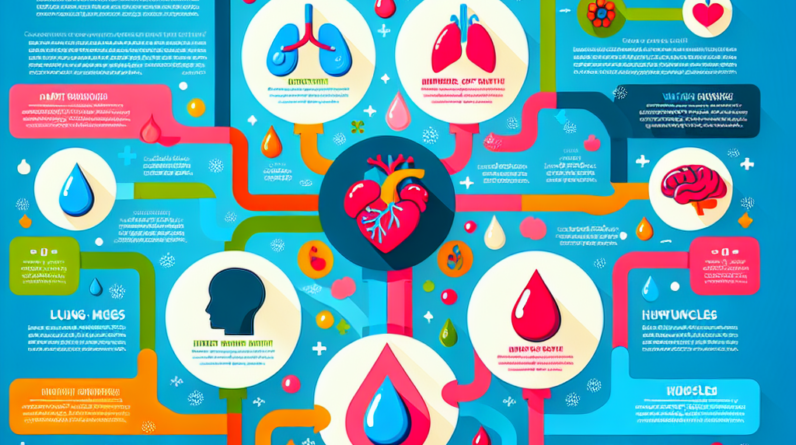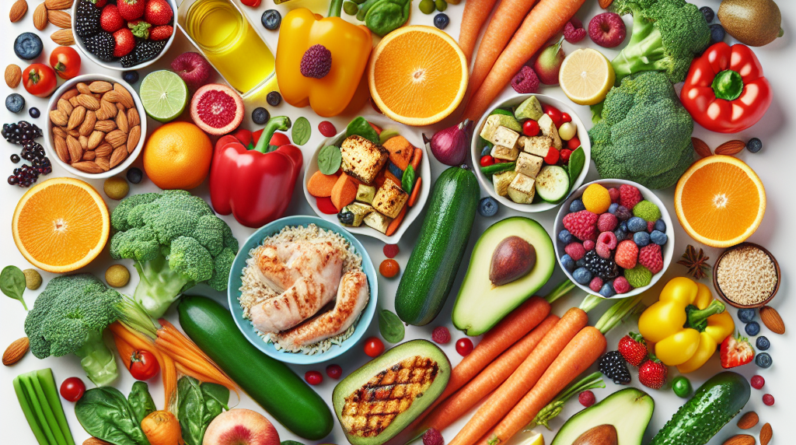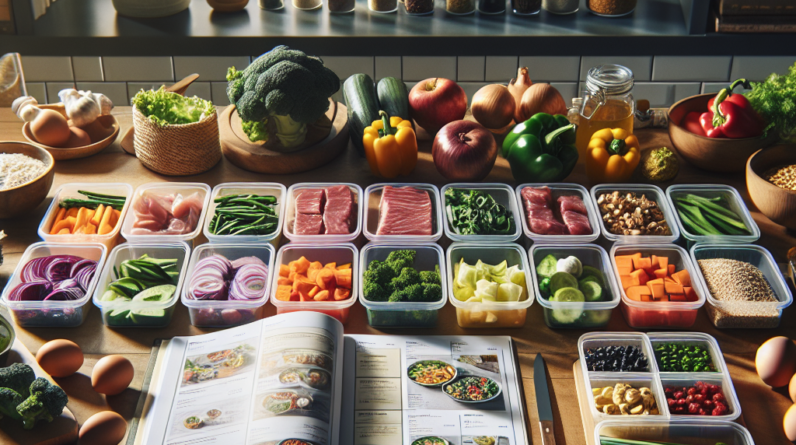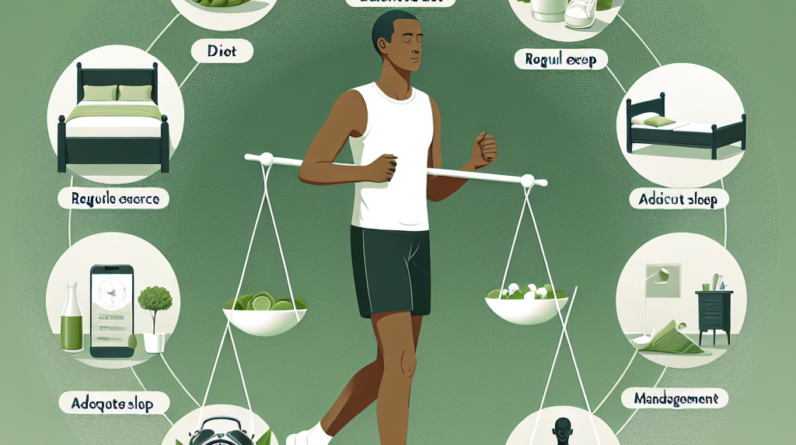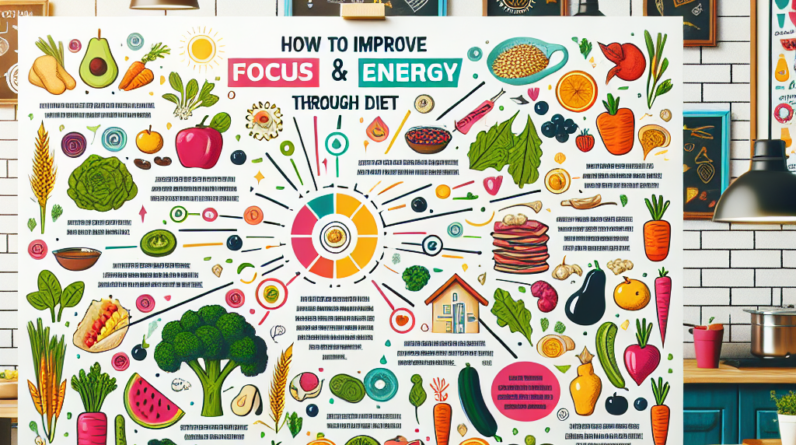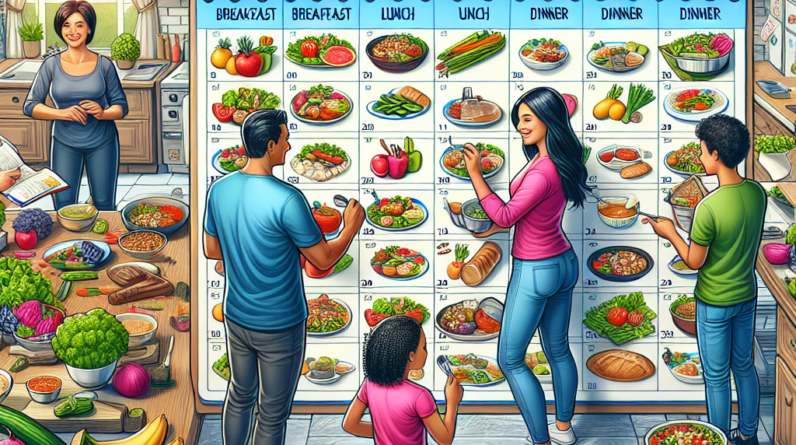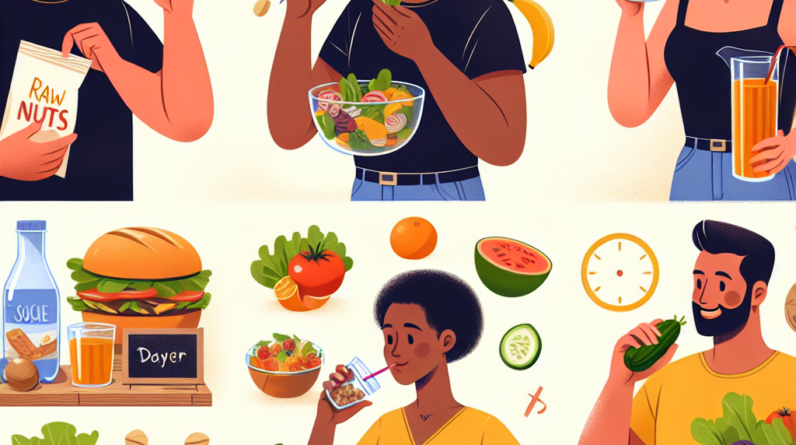
Focus on Whole Foods
Understanding Whole Foods
When I first began my journey to better health, I learned that whole foods are the way to go. These are foods that are minimally processed and close to their natural state. Think fruits, vegetables, nuts, seeds, and whole grains. By focusing on whole foods, you’re fueling your body with essential nutrients that processed foods just don’t provide.
Get a Huge Discount and Bonus! Try for 90 Days Risk Free
Incorporating more whole foods into my diet transformed how I felt. I had more energy, which is super important when you’re trying to navigate life, work, and everything else. I encourage anyone looking to dial in their nutrition to give whole foods a serious shot. You’ll be amazed at the difference it makes!
Not only do whole foods nourish my body, but they also taste incredible. There’s something so satisfying about biting into a fresh apple or tossing together a vibrant salad filled with colorful veggies. It’s all about enjoying what you eat while supporting your health.
Shopping for Whole Foods
When shopping for whole foods, I always hit the perimeter of the grocery store first. That’s typically where you’ll find the fresh produce, dairy, and meats. Make it a habit to list out whole food items you love before you go shopping. This way, you won’t be tempted by the processed junk in the aisles.
Also, I try to buy organic whenever possible, especially for the dirty dozen. It’s a way of reducing pesticide exposure while enjoying my favorite seasonal fruits and veggies. Remember to keep an eye out for local farmers’ markets; they offer some fantastic fresh produce at great prices!
Lastly, don’t underestimate the power of meal prepping. By planning your meals around whole food ingredients, you’ll save time during the week and avoid the temptation of fast food or quick, unhealthy snacks.
Incorporating Whole Foods Daily
So, how do I make whole foods a daily part of my diet? I start my mornings with a hearty smoothie loaded with spinach, berries, and a scoop of protein powder. It’s fast, nutritious, and keeps me full until lunch.
At lunch, I whip up a Buddha bowl using quinoa, roasted veggies, and a splash of tahini dressing. This not only provides a variety of nutrients but also keeps meals interesting and colorful on my plate.
Having a stash of healthy snacks on hand is a game changer too! I love keeping nuts and seeds or veggie sticks with hummus nearby. Whenever hunger strikes, I’m less likely to reach for chips or candy.
Get a Huge Discount and Bonus! Try for 90 Days Risk Free
Stay Hydrated
The Importance of Water
When I talk about improving my diet, water is always at the top of the list. It’s wild how many people forget to drink enough throughout the day! Staying hydrated helps keep my energy levels up, my skin looking fresh, and my digestive system kicking.
I find that when I’m well-hydrated, I don’t mistake thirst for hunger. It has really helped me manage my snacking habits. Kind of crazy how something so simple can make such a profound difference, right?
Plus, drinking enough water can really help with weight management. If you fill your stomach with water before meals, it keeps you feeling fuller, which means you’re less likely to overeat. It’s a win-win!
How Much Water Do You Need?
Now, let’s chat about how much water we really need. There’s a lot of back and forth on this topic, but I aim for about 8-10 cups a day, depending on my activity level and the weather. On days when I hit the gym or spend excessive time outdoors, I make it a point to drink even more.
Need a Serious Energy BOOST? Huge Discount Try for 90 Days Risk Free
A great trick is to keep a reusable water bottle with you at all times. Ideally, one that holds a decent amount, like 32 ounces—that way, you can keep track of how much you’re drinking throughout the day!
Also, consider tracking your intake through apps or good ol’ pen and paper. This can help you see patterns and ensure you’re meeting your hydration goals.
Adding Flavor to Water
If plain water bores you, try jazzing it up! I love adding slices of lemon, cucumber, or a few mint leaves. Infused water not only tastes amazing but also looks pretty fabulous when I serve it to friends.
Herbal teas are another cool alternative. They’re hydrating and can offer a warming effect during colder months. Green tea even comes with its own set of health benefits. I make a point of enjoying a cup in the afternoon to give me a little boost, sans jitters.
Don’t forget about getting hydration from food! Fruits like watermelon, cucumbers, and oranges can contribute to your daily hydration needs without you even realizing it!
Mindful Eating
The Concept of Mindful Eating
Mindful eating has been a game changer for me. Instead of wolfing down food while distracted by my phone or TV, I’ve started to really focus on what I’m eating. This practice helps me savor each bite and truly appreciate my meals, rather than just eating for the sake of it.
When I take my time, I often find that I feel more satisfied and less likely to overeat. It’s funny how the mind can trick us into thinking we need more when we’re not fully engaged with our food!
One practice that works for me is putting down my utensils between bites. It sounds simple, but it really encourages a slower pace and gives me time to check in with how I’m feeling after each bite.
Eliminating Distractions
Eliminating distractions like phones and televisions during meals has also helped me be more mindful. I usually set the table, light a candle, and take a moment to appreciate the food before me. This simple ritual transforms eating from a rush job into a more pleasant experience.
Other methods include eating with family or friends, which naturally slows down the pace as conversation flows. Nothing quite beats sharing a meal with others—it makes the whole process more enjoyable!
Additionally, I’ve tried to practice gratitude before meals. It changes my mindset and helps me appreciate the effort that has gone into preparing the food. Feeling thankful can truly enhance the experience of eating.
Listening to Your Body
One of the key lessons I’ve learned while mindful eating is listening to my body’s hunger cues. I check in with myself to see if I’m genuinely hungry or just bored. This has cut down on unnecessary snacking dramatically.
Good Health Solution is Easier Than Most People Think!
Take a Look for Yourself!
I find it beneficial to eat only when I’m hungry, taking note of how I feel before, during, and after meals. It’s easier to differentiate between physical hunger and emotional cravings when I’m present during my meals.
Lastly, I’d recommend celebrating small victories. When I recognize that I’ve made a conscious decision to eat mindfully, I feel more empowered and committed to keeping this positive habit alive.
Balanced Nutrition
Understanding Macros and Micros
When I started to dive into nutritional balance, I discovered the importance of macros (carbs, proteins, and fats) and micros (vitamins and minerals). Balancing these nutrients has become a major part of my diet strategy. Making sure I get a good amount of each component is key for overall health.
I aim to incorporate lean proteins, healthy fats, and complex carbs into each meal. For example, a typical dinner for me might include grilled chicken, a side of quinoa, and steamed broccoli. Each element plays a role in supporting my body.
Trying out new recipes and meal plans that cater to my preferred macro ratios has been a fun challenge! There are so many resources out there to help you plan balanced meals according to your nutritional needs.
Identifying Your Needs
Everyone’s dietary needs are different, so it’s essential to find out what works best for you. I had a blast experimenting to learn how my body responds to different types of foods, and it’s still a process. Keeping track of how certain meals make me feel has opened my eyes to what my body actually needs.
I also recommend consulting with a registered dietitian if you’re unsure where to start or if you have specific goals. They can help tailor a nutrition plan that’s just right for you!
Over time, I’ve gotten better at listening to my body’s requirements. If I’m feeling sluggish, I might assess my meals over the last few days and adjust as needed. Sometimes, a little tweak can yield big results!
Meal Variety
One of my favorite strategies for maintaining balanced nutrition is keeping my meals varied. Eating the same thing can become super boring, and I want my meals to be a source of joy, not just sustenance. I make it a point to try new recipes or ingredients each week.
Seasonal produce is a fabulous way to change things up! Every time the seasons shift, there are new fruits and veggies to explore. I’ve found it easier to get creative with cooking when I’m inspired by the ingredients available.
Being adventurous can lead to delightful surprises in flavor too! Who knows? You might stumble upon a new favorite dish or ingredient along the way. Embrace the variety—it’s a cornerstone of a healthy diet!
Limit Processed Foods
Identifying Processed Foods
One of the harder challenges in improving my diet was learning to identify processed foods. There are lots of sneaky ones out there that don’t scream “processed” in the grocery aisle. I had to educate myself on reading labels and understanding ingredient lists.
This is where I learned that if a product has a laundry list of ingredients, many of which I can’t pronounce, it’s probably best left on the shelf. I try to stick to foods that have five ingredients or less, keeping it simple.
Additionally, I noticed that if I could find a whole food alternative, I’d opt for that instead. For instance, I swapped out conventional protein bars for homemade versions using oats, nut butter, and a touch of honey. It’s about being mindful of every bite!
The Effects of Processed Foods
Processed foods often have higher amounts of sugar, unhealthy fats, and preservatives that can affect my energy levels and overall health. I felt sluggish when I overindulged in these foods. Realizing how these “quick fixes” were impacting my well-being was a turning point for me.
Over time, I’ve noticed that when I eat less processed junk, I have more stable energy levels throughout the day. This means I can be more productive at work and enjoy my leisure activities without crashing!
It’s also pretty eye-opening to see how eliminating processed foods can change my cravings. I started craving whole foods instead of sugary snacks, which felt liberating. I finally felt like I had control over my food, instead of the other way around.
Finding Alternatives
Finding tasty alternatives to processed foods became one of my favorite things! I’ve had a blast discovering new recipes and ingredients. For instance, instead of reaching for chips, I now love snacking on air-popped popcorn or crunchy veggies with guacamole.
Batch cooking and prepping meals also helped cut down on processed snacks. If I have prepared meals in my fridge, I’m less likely to pop into the pantry for something quick but junky.
My advice? Keep experimenting! You never know what healthier alternatives you might fall in love with. Plus, it’s fun to involve friends and family in the journey. Cooking together is a great way to share knowledge and creativity!
FAQs
1. What are some examples of whole foods?
Whole foods include items that are minimally processed, like fruits, vegetables, whole grains, legumes, nuts, and seeds. Basically, if you can grow it, it’s likely a whole food!
2. How can I stay more hydrated throughout the day?
Keeping a water bottle with you at all times is key! Additionally, try setting reminders on your phone to drink water, or you can infuse your water with fruits to make it more exciting!
3. What is mindful eating and how can I start practicing it?
Mindful eating is about being present during your meals. Try to eat without distractions, focus on the tastes, and listen to your body’s hunger cues. Start by putting down your utensils between bites!
4. Why should I limit processed foods?
Processed foods often contain high levels of sugar, unhealthy fats, and preservatives that can negatively impact your energy and overall health. By limiting these foods, you’ll likely feel better and have more stable energy levels.
5. Can I lose weight by simply eating whole foods?
Eating whole foods can help with weight management. They are generally more nutrient-dense and filling, which can prevent overeating. However, maintaining an overall balanced diet and lifestyle is key to achieving and sustaining weight loss.



